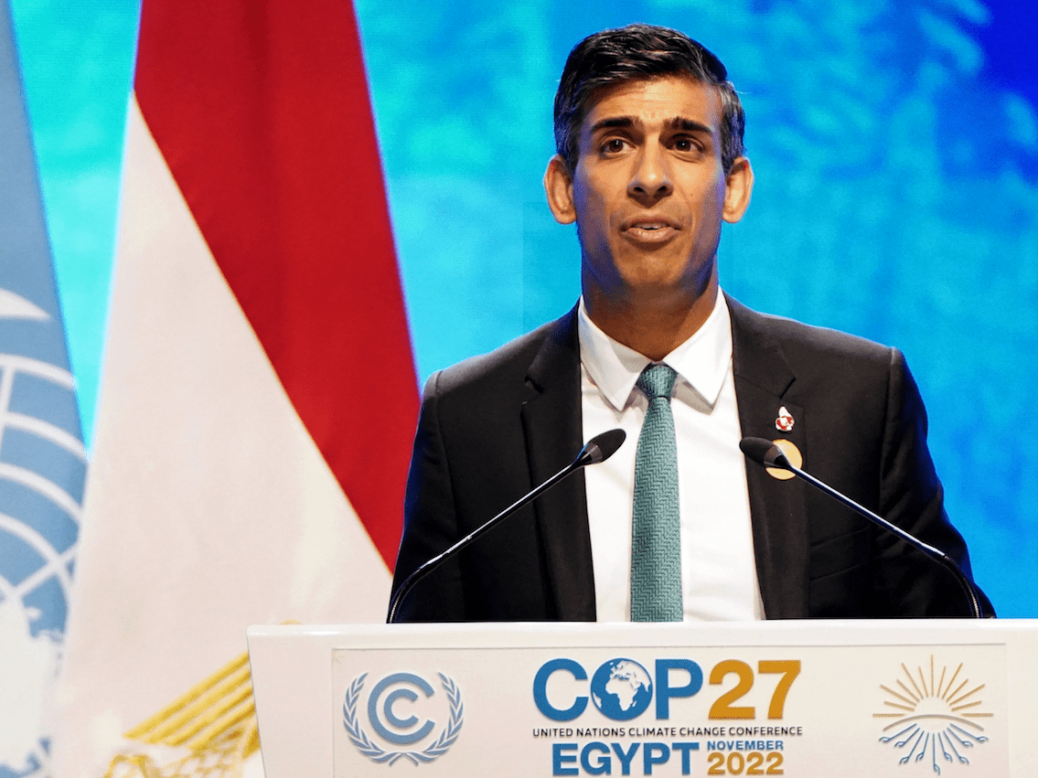
Rishi Sunak insists that increasing domestic production of oil and gas will boost UK energy security and reduce our reliance on gas imports. Forget for a moment the implications of expanding fossil fuel production for our climate, and let’s consider this claim.
Over the past 13 years this government has offered hundreds of North Sea licences. Yet the amount of gas produced from them has only provided just over a fortnight’s worth of gas. That’s a grand total of sixteen days worth of extra gas since 2010. A long way from being enough to guarantee British energy independence.
The 27 new licences awarded to oil and gas companies this week, then, should be viewed for what they are: political posturing rather than a serious plan to increase UK energy supplies. Likewise for the hundred new licences the government promised as part of Sunak’s pledge to “max out” North Sea reserves. Official projections show that new field approvals, including newly and previously licensed fields, would provide only an additional three weeks worth of gas a year, or the equivalent of one extra year’s worth of UK gas demand between now and 2050.
New licences are not the same as new North Sea developments, which do contain significant reserves but, like the whole basin, which is in decline, are mainly oil, not gas. The largest – Rosebank – received its licence to explore in the early 2000s, but was only given drilling consent last month. Even this enormous field, despite containing 500 million barrels, won’t guarantee British energy independence, because the UK exports 80 per cent of its oil. Most of the UK’s gas has been burned; new licences will make only a marginal difference to UK gas imports.
Energy affordability, not supply, is the central problem facing the country. Average bills are still double what they were two years ago, and as winter approaches more than six million households are estimated to be living in fuel poverty. Our high dependency on gas to heat our homes and generate electricity meant British households were among the most susceptible to global market fluctuations, and were therefore the worst hit in western Europe by last year’s energy crisis.
[See also: New oil fields are bad news for North Sea workers]
Yet the government is stalling on scaling up the UK’s renewable capacity and insulating homes, both of which would help end the grip that expensive gas has over Britain. Worse than this is the refusal to extend last year’s energy bill support to those who need it this year, despite millions finding themselves priced out of the market. The bosses of energy firms are warning that this winter will be worse for many than last.
But political pantomime is doing more than just locking Britain into a broken energy system that exacerbates fuel poverty. By continuing to embrace new oil and gas, the government is destroying the UK’s hard-won status as a climate leader, and therefore our ability to leverage ambition from other countries, at exactly the time they must step up.
In a matter of weeks, world leaders will meet in Dubai for Cop28, the UN climate summit. This critical meeting will be measured on its ability to make meaningful progress towards fossil fuel phase-out. More than 80 countries, including the UK, supported this aim last year. But with weaker climate targets and an obsession with fossil fuel expansion the government will struggle to be treated as a trusted partner.
It isn’t too late for Sunak to correct his chaotic approach to energy and climate policy. Denmark recently invited the UK to join the Beyond Oil and Gas Alliance, a group committed to phasing out oil and gas production – just like Colombia, an oil producer of a roughly equivalent size to the UK, did in August. The global strategic value of such a move would be huge. As with its role in the Powering Past Coal Alliance, the UK could be a serious player in ensuring that the switch from carbon-based to clean energy is permanent. As climate breakdown becomes more apparent – witnessed now by thousands whose homes and businesses were flooded by recent storms that were exacerbated by climate change – we urgently need a government that will end the expansion plans of an industry that wants to lock us into oil and gas for decades longer than we can afford.
[See also: Oil’s five decades as ruler of the world]




